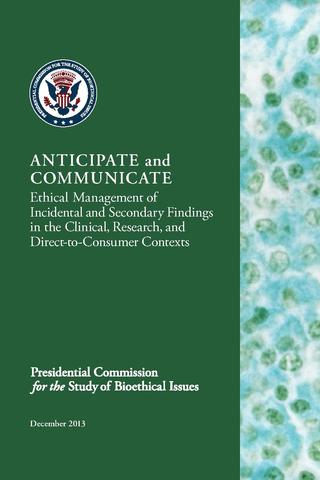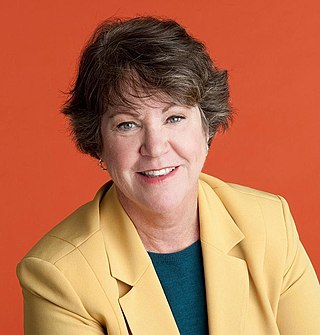Genetic discrimination occurs when people treat others differently because they have or are perceived to have a gene mutation(s) that causes or increases the risk of an inherited disorder. It may also refer to any and all discrimination based on the genotype of a person rather than their individual merits, including that related to race, although the latter would be more appropriately included under racial discrimination. Some legal scholars have argued for a more precise and broader definition of genetic discrimination: "Genetic discrimination should be defined as when an individual is subjected to negative treatment, not as a result of the individual's physical manifestation of disease or disability, but solely because of the individual's genetic composition." Genetic Discrimination is considered to have its foundations in genetic determinism and genetic essentialism, and is based on the concept of genism, i.e. distinctive human characteristics and capacities are determined by genes.

Incidental medical findings are previously undiagnosed medical or psychiatric conditions that are discovered unintentionally and during evaluation for a medical or psychiatric condition. Such findings may occur in a variety of settings, including routine medical care, during biomedical research, during post-mortem autopsy, or during genetic testing.

Diana M. Zuckerman is an American health policy analyst who focuses on the implications of policies for public health and patients' health. She specializes in national health policy, particularly in women's health and the safety and effectiveness of medical products. She is the President of the National Center for Health Research and the Cancer Prevention and Treatment Fund.

A biobank is a type of biorepository that stores biological samples for use in research. Biobanks have become an important resource in medical research, supporting many types of contemporary research like genomics and personalized medicine.
Neonatal withdrawal or neonatal abstinence syndrome (NAS) or neonatal opioid withdrawal syndrome (NOWS) is a withdrawal syndrome of infants after birth caused by in utero exposure to drugs of dependence, most commonly opioids. Common signs and symptoms include tremors, irritability, vomiting, diarrhea, and fever. NAS is primarily diagnosed with a detailed medication history and scoring systems. First-line treatment should begin with non-medication interventions to support neonate growth, though medication interventions may be used in certain situations.
Michael Alan Grodin is Professor of Health Law, Bioethics, and Human Rights at the Boston University School of Public Health, where he has received the distinguished Faculty Career Award for Research and Scholarship, and 20 teaching awards, including the "Norman A. Scotch Award for Excellence in Teaching." He is also Professor of Family Medicine and Psychiatry at the Boston University School of Medicine. In addition, Dr. Grodin is the Director of the Project on Medicine and the Holocaust at the Elie Wiesel Center for Judaic Studies, and a member of the faculty of the Division of Religious and Theological Studies. He has been on the faculty at Boston University for 35 years. He completed his B.S. degree at the Massachusetts Institute of Technology, his M.D. degree from the Albert Einstein College of Medicine, and his postdoctoral and fellowship training at UCLA and Harvard University.
Unnecessary health care is health care provided with a higher volume or cost than is appropriate. In the United States, where health care costs are the highest as a percentage of GDP, overuse was the predominant factor in its expense, accounting for about a third of its health care spending in 2012.
Biobank ethics refers to the ethics pertaining to all aspects of biobanks. The issues examined in the field of biobank ethics are special cases of clinical research ethics.
Return of results is a concept in research ethics which describes the extent of the duty of a researcher to reveal and explain the results of research to a research participant.
Privacy for research participants is a concept in research ethics which states that a person in human subject research has a right to privacy when participating in research. Some typical scenarios this would apply to include, or example, a surveyor doing social research conducts an interview with a participant, or a medical researcher in a clinical trial asks for a blood sample from a participant to see if there is a relationship between something which can be measured in blood and a person's health. In both cases, the ideal outcome is that any participant can join the study and neither the researcher nor the study design nor the publication of the study results would ever identify any participant in the study. Thus, the privacy rights of these individuals can be preserved.
Johanna Olson-Kennedy is an American physician who specializes in the care of children and teenagers with gender dysphoria and youth with HIV and chronic pain. She is board-certified in pediatrics and adolescent medicine and is the medical director of the Center for Transyouth Health and Development at Children's Hospital Los Angeles.

Michael H. Cohen is an American attorney. He is the founder of the Cohen Healthcare Law Group, and a former professor at Harvard Medical School and the Harvard School of Public Health. Cohen has authored books on health-care law and policy.

Diana W. Bianchi is the director of the U.S. National Institutes of Health Eunice Kennedy Shriver National Institute of Child Health and Human Development, a post often called “the nation’s pediatrician.” She is a medical geneticist and neonatologist noted for her research on fetal cell microchimerism and prenatal testing. Bianchi had previously been the Natalie V. Zucker Professor of Pediatrics, Obstetrics, and Gynecology at Tufts University School of Medicine and founder and executive director of the Mother Infant Research Institute at Tufts Medical Center. She also has served as Vice Chair for Research in the Department of Pediatrics at the Floating Hospital for Children at Tufts Medical Center.
Dynamic consent is an approach to informed consent that enables on-going engagement and communication between individuals and the users and custodians of their data. It is designed to address the many issues that are raised by the use of digital technologies in research and clinical care that enable the wide-scale use, linkage, analysis and integration of diverse datasets and the use of AI and big data analyses. These issues include how to obtain informed consent in a rapidly-changing environment; growing expectations that people should know how their data is being used; increased legal and regulatory requirements for the management of secondary use of data in biobanks and other medical research infrastructure. The approach started to be implemented in 2007 by an Italian group who introduced the ways to have an ongoing process of interaction between researcher and participant where "technology now allows the establishment of dynamic participant–researcher partnerships." The use of digital interfaces in this way was first described as 'Dynamic Consent' in the EnCoRe project. Dynamic Consent therefore describes a personalised, digital interface that enables two-way communication between participants and researchers and is a practical example of how software can be developed to give research participants greater understanding and control over how their data is used. It also enables clinical trial managers, researchers and clinicians to know what type of consent is attached to the use of data they hold and to have an easy way to seek a new consent if the use of the data changes. It is able to support greater accountability and transparency, streamlining consent processes to enable compliance with regulatory requirements.
Leann L. Birch was an American developmental psychologist, best known for her research on children's eating behaviors.
Ann Stone Minot was an American biochemist and physiologist.

Kathy Lynn Hudson is an American microbiologist specializing in science policy. She was the deputy director for science, outreach, and policy at the National Institutes of Health from October 2010 to January 2017. Hudson assisted in the creation and launch of All of Us, the BRAIN initiative, and the National Center for Advancing Translational Sciences. She founded the Genetics and Public Policy Center at Johns Hopkins University in 2002. Hudson is an advocate for women in science.
Linda A. Teplin is an American behavioral scientist and public health researcher. Her research focuses on the interface between mental health and the criminal justice system, criminalization of the mentally ill, and mental health needs and related health outcomes of incarcerated populations, including those in juvenile detention, jails, and prisons. Many of her published papers investigate the prevalence of psychiatric disorders, mortality, patterns of crime victimization, health service utilization, disproportionate incarceration of minorities, and HIV/AIDS risk behaviors. Her research has provided the empirical basis for changes in public health and criminal justice policy.
Daniel Richard Masys is an American biotechnologist and academic. He is an Affiliate Professor of Biomedical and Health Informatics at the University of Washington.





